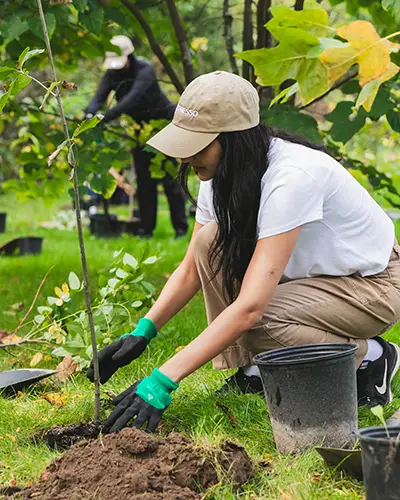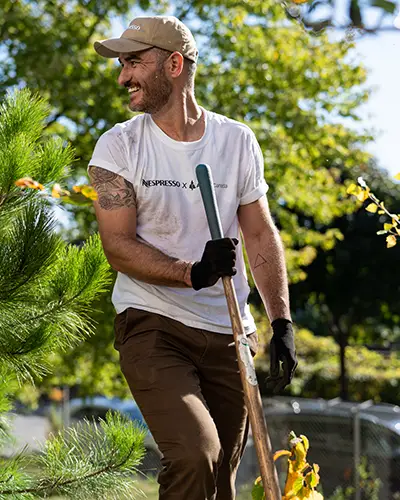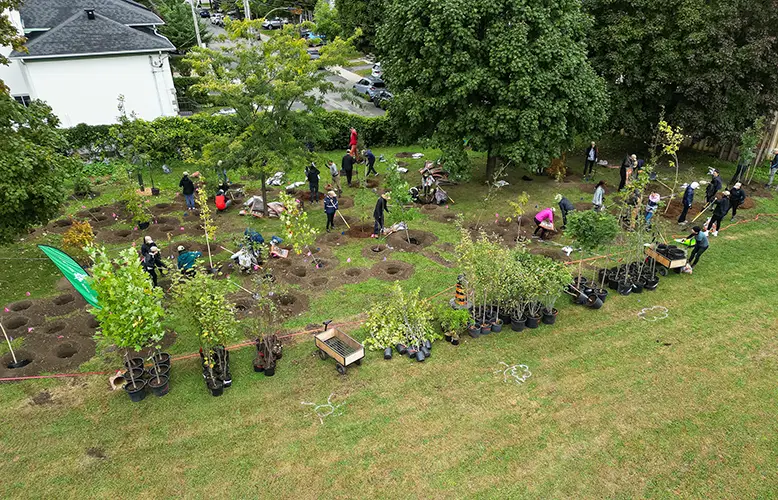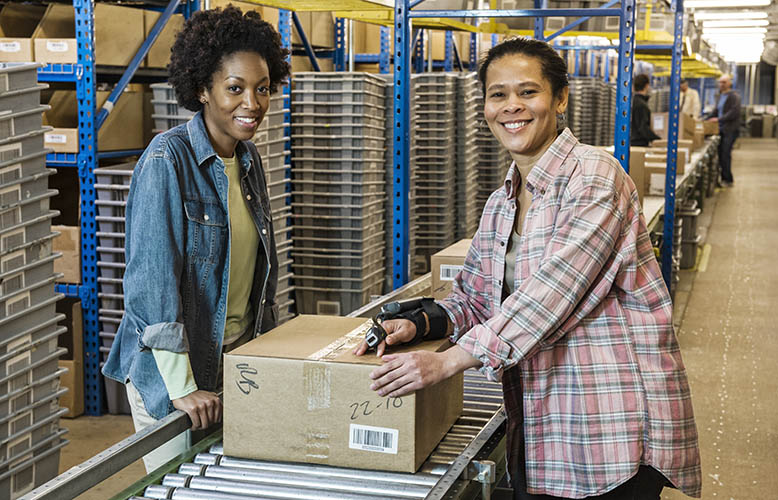For the fourth consecutive year, Nespresso Canada is partnering with Tree Canada, the country’s largest tree-planting charity organization, as a means of contributing to national greening and the fight against climate change. To date, the B Corp certified company has donated over $533,000 and has helped plant some 114,000 trees throughout Canada.
An Ongoing Commitment for More Resilient Canadian Forests
Nespresso Canada has donated $100,000 to Tree Canada’s “Operation ReLeaf” program which seeks to restore areas that have experienced significant tree loss due to natural disasters and the effects of climate change. For over 20 years, “Operation ReLeaf” has been helping communities recover from devastating events, promoting resilience and biodiversity in urban forests.
“This $100,000 donation signals our ongoing commitment to reforestation in Canada, as well as our support for local communities at a time when the challenges posed by natural disasters are becoming even greater. The donation is also aligned with our broader commitment to coffee producers who rely on healthy ecosystems. Thanks to firmly rooted partnerships, like the one we maintain with Tree Canada, we are able to significantly impact our local ecosystem and achieve our shared sustainability goals,” announced Carlos Oyanguren, President of Nespresso Canada.


“Partnerships with committed sponsors like Nespresso Canada are incredibly meaningful to our organization,” explained Nicole Hurtubise, CEO of Tree Canada. “Their ongoing support of our programs and mission helps us grow our nationwide impact and increase awareness about the fundamental importance of trees for our environment and communities among Canadians.” she added.
In 2023, Nespresso also made a $100,000 donation to this very same program, with plantings planned in Manitoba and British Columbia in 2024. To date, close to 70,000 trees have been planted thanks to Nespresso in Manitoba’s Interlake region in an effort to regenerate its boreal forest which was devastated by fires in 2021. As part of that same project, members of Indigenous communities received comprehensive training in forestry operations.
Other projects supported by Nespresso Canada through this same program are currently underway in British Columbia in response to the province’s many fires in recent years, including forest fires in Elephant Hill (2017), McDougall Creek (2023) and Shetland Creek (2024).
A More Sustainable Future, One Tree at a Time
Nespresso Canada employees are part of the solution, too. Each year more than one hundred employees take part in tree planting activities within Tree Canada’s “Partners in Planting” program. In addition to inspiring a genuine collective movement, this allows us to contribute to major projects from coast to coast aimed at building a more sustainable future. This fall, activities have allowed us to plant 250 trees in Quebec, 170 trees in Ontario and 325 in British Columbia.
Making Coffee a Force for Good for Communities and the Planet
Beyond this partnership with Tree Canada, Nespresso is deeply committed to restoring healthy ecosystems as part of the sustainable development solution. Its “The Positive Cup” strategy aims to make every Nespresso cup a cup of coffee with a positive impact on the world, by helping to build resilient communities and environments, without compromising on coffee quality. For example, to offset operational carbon emissions, more than 7 million trees have been planted around the world in coffee-producing regions since 2014 thanks to Nespresso’s agroforestry program.
Named the most sustainable company in the coffee processing industry by World Finance magazine in 2021 and 2024, Nespresso is deeply committed to regenerative agriculture, which includes farming practices aimed at protecting and restoring natural resources, primarily soil, but also water and biodiversity. This approach not only improves soil health and fertility, but also promotes carbon capture in soils and plant biomass.































